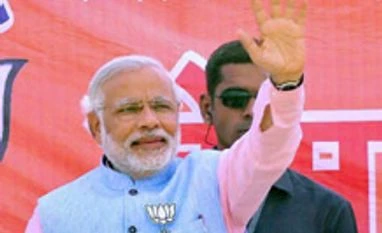Uniform Civil Code does not mean imposing Hindu code, says Modi
Promise of implementing a Uniform Civil Code is one of the core issues of BJP and finds mention in its manifesto
Press Trust of India New Delhi Narendra Modi has said implementation of a Uniform Civil Code does not mean that Hindu Code would be imposed on all citizens of the country.
"Constitution says that the government will make efforts to implement the Uniform Civil Code. The second important point I would like to make clear is that implementing a UCC does not mean that all citizens of the country will be brought under the Hindu code.
"I believe that there are several provisions in the Hindu Code which are irrelevant and they need reforms. Carrying 18th century laws in 21st century is unnecessary," he told Urdu weekly "Nai Duniya".
The promise of implementing a Uniform Civil Code is one of the core issues of BJP and finds mention in its manifesto.
Seeking to allay apprehensions among muslims, Modi ruled out scrapping any existing constitutional and statutory mechanisms meant for their welfare and said he would instead work to strengthen them.
Terming secularism an "import" from the West, Modi said that Congress has used it to pocket Muslim votes and they are now being treated as a "vote bank" by it and other parties.
He said the Constitution has given equal rights to all citizens and religious harmony and respect for all religions are in "India's DNA".
Asked if he would do away with the Minority Commission, Minority Finance Development Corporation as feared by his critics, Modi said, "There is a need to strengthen constitutional and statutory bodies and not to abolish them.
"The need is to make them productive and strong so that they could do solid work instead of continuing with the existing system which takes symbolic measures."
Modi said "extremism" over castes and religions have been used to divide the country and advocated "zero tolerance" for the guilty in religious and caste violence.
In such issues, he said, more than government actions it is the dialogue among different sections of society which is more important.
Arguing that secularism has been "exploited" for political purpose, Modi said the politics in present times is revolving around it.
)
)